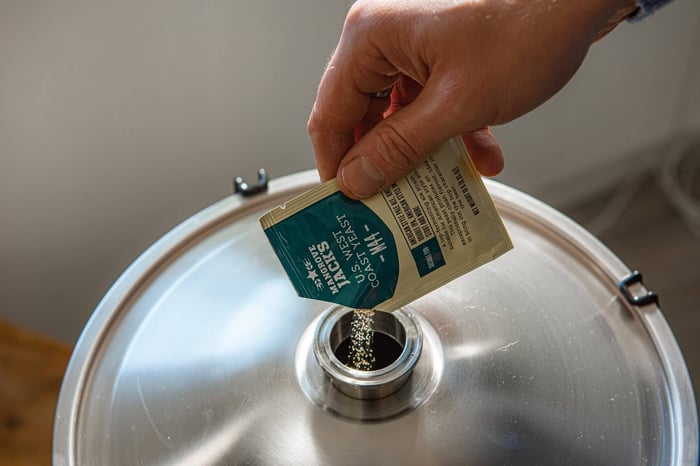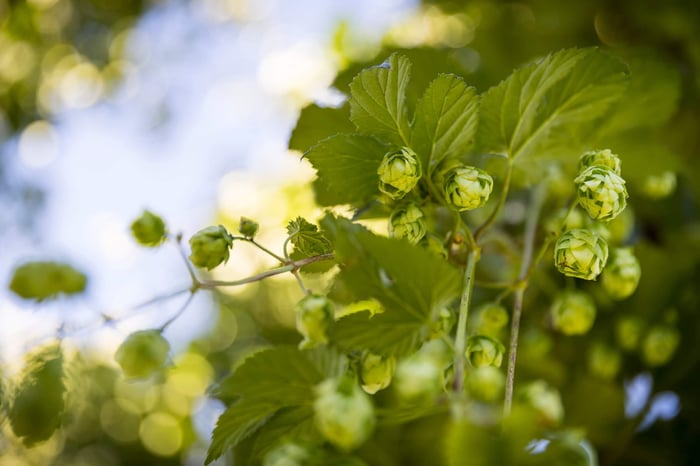Why do some brewing sessions result in absolutely brilliant beer whilst others leave you wondering what went wrong? The answer often lies in the most abundant ingredient in your brew—water. Comprising over 90% of your finished beer, water quality and chemistry can make or break your brewing efforts.
Many brewers focus intensively on grain bills, hop schedules, and yeast selection, yet overlook the foundation that supports all these elements. Understanding water chemistry isn't just about following guidelines—it's about unlocking your beer's true potential.
European Water Sources: What You Need to Know
Different regions across Europe present unique water challenges and opportunities. Here's what to consider based on your water source:
Municipal Water Supplies Most European cities treat their water with chlorine or chloramines to prevent bacterial contamination during distribution. Whilst these chemicals keep water safe for drinking, they can severely impact yeast health and create undesirable off-flavours in your finished beer.
Private Boreholes and Springs Natural water sources often contain elevated levels of metallic ions, particularly iron, which can impart unpleasant metallic notes to your beer. The mineral content varies significantly across European regions.
Bottled Water Solutions Commercial bottled water offers consistency and safety, making it an excellent choice for brewing. However, avoid highly mineralised waters, particularly those from volcanic regions, as they contain excessive minerals that can disrupt your brewing chemistry.
Diagnosing Water-Related Brewing Issues
Experiencing odd flavours in your beer? Here's a systematic approach to identifying water-related problems:
Off-Flavour Analysis
Medicinal or Antiseptic Character This typically indicates chlorophenol formation when chlorine compounds interact with brewing yeast. Solutions include carbon filtration, Campden tablet treatment, or boiling water for seven minutes before use.
Metallic or Blood-like Taste Usually caused by iron or other heavy metals in your water source. Proper filtration or chemical treatment can eliminate these contaminants.
Style-Specific Success Patterns If you consistently produce excellent pale beers but struggle with dark styles (or vice versa), your water's mineral profile suits one beer type over another. Consider water modification techniques to expand your brewing range.
The Chemistry Framework: Key Parameters for Success
Once you're ready to optimise your brewing water, understanding these fundamental chemistry concepts becomes essential.
pH Management Throughout the Brewing Process
pH control affects every brewing stage and requires careful attention:
Mashing Phase: Maintain pH between 5.2-5.6 for optimal enzyme function
Boiling Stage: Natural pH reduction occurs due to Maillard reactions and hop acid extraction
Fermentation Period: pH drops to 4.0-4.5, creating protective conditions against contamination
Exception: Sour beer styles can reach pH levels as low as 2.0 in extreme cases.
Use the Grainfather water calculator to determine precise pH adjustments based on your grain bill and target beer style.
Critical Ion Profiles for Beer Quality
Understanding mineral content helps you tailor water chemistry to specific beer styles:
Calcium: The Foundation Mineral Essential for multiple brewing functions despite minimal flavour contribution:
- Enhances mash acidity in alkaline water conditions
- Facilitates enzyme activity during conversion
- Optimises hop bitterness extraction
- Improves beer clarity and reduces colour formation
Add calcium via gypsum (calcium sulphate) or calcium chloride rather than calcium carbonate, which has limited solubility.
Magnesium: The Enzyme Catalyst Supports enzyme activity and provides yeast nutrition. Moderate levels can enhance overall flavour perception without dominating the palate.
Balancing Act: Chloride and Sulphate Ratios This relationship defines your beer's fundamental character:
Chloride Enhancement: Promotes malt character, increases sweetness perception, and improves mouthfeel. Ideal for traditional British ales, German märzens, and malt-forward styles.
Sulphate Emphasis: Accentuates hop character, increases bitterness perception, and creates crisp finishes. Perfect for German pilsners, Belgian IPAs, and hop-forward styles.
The ratio determines beer balance:
- Sulphate-dominant = hop-emphasised character
- Chloride-dominant = malt-emphasised character
- Balanced levels = neutral profile
Sodium Considerations Contributes to alkalinity and can enhance flavour complexity in appropriate amounts. Excessive levels create harsh, salty characteristics and inhibit yeast performance.
Important: Never use iodised salt, as iodine is toxic to brewing yeast.
Simplifying Water Chemistry with Digital Tools
Water chemistry calculations can seem daunting, but modern technology makes the process straightforward. The Grainfather app includes a comprehensive water calculator that considers your brewing equipment, source water analysis, and recipe specifications to recommend precise salt and acid additions.
This eliminates guesswork and ensures your water profile complements your intended beer style perfectly.
Questions and Answers: Common Water Chemistry Concerns
Q: How significant is the impact of water adjustment on beer quality?A: Properly adjusted water can transform a decent beer into an exceptional one. Many brewers report dramatic improvements in clarity, flavour balance, and overall drinkability.
Q: Is water chemistry adjustment necessary for all beer styles?A: Whilst basic water quality is essential for all brewing, specific adjustments become more critical for styles with pronounced character requirements, such as Burton-on-Trent IPAs or Pilsen lagers.
Q: Can I over-adjust my brewing water?A: Absolutely. Start with small adjustments and taste the results before making dramatic changes.
Transform Your Brewing Practice
Water chemistry represents one of the most significant opportunities for improving your beer quality. Start with understanding your source water, identify any obvious problems, then gradually explore targeted adjustments for specific styles.
Having troubles with water chemistry in your brewing? Contact us - Our team is happy to assist.
For comprehensive brewing education, explore our complete Brewing 101 article series, designed to help you master every aspect of the craft.
L'équipe du Grainfather










